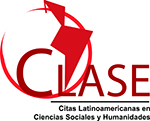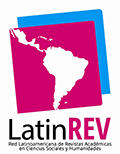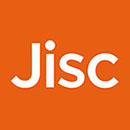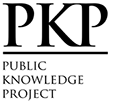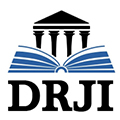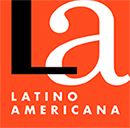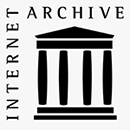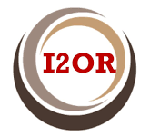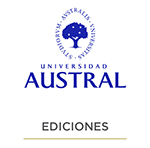Copyright in the Relationship Underlying Non-Fungible Cryptographic Tokens
Abstract
This study addresses the intersection between intellectual property rights, copyright and related rights and cryptographic tokens managed by distributed ledgers. To examine these issues, a particular focus is adopted on a specific subset of tokens, asset tokens, which can represent either a fungible unit of account or a unique non-fungible asset, non-fungible tokens or NFTs. The research focuses on the classification and protection of these unique, scarce, and cryptographic assets that are linked to works of art in both physical and digital formats. A non-fungibility perspective is adopted to provide a comprehensive analysis of the subject.
The main objective is to elucidate key issues in the field of copyright and intellectual property related to NFTs. Among the questions raised are: the extent of copyright protection over NFTs, the relationship between the internal structure of the asset and its visual representation, the technical feasibility of withdrawing an NFT from the market in case of intellectual property rights infringement, and, finally, the rights that the owner of a physical work of art has to convert it into an NFT. The detailed technical analysis aims to provide answers to these questions, thus contributing to the legal and academic understanding of digital assets in the context of intellectual property.
Downloads
References
Actualidad Jurídica. (29 de noviembre de 2022). La justicia española embargó NFTs de obras de arte creados por sus compradores. https://actualidadjuridicaonline.com/la-justicia-espanola-embargo-nfts-de-obras-de-arte-creados-por-sus-compradores/.
Balaji, A. (5 de marzo d 2018). A Simple Explanation of Crypto-collectibles. Medium. https://medium.com/crypto-simplified/A-Simple-Explanation-of-Crypto-Collectibles-8674c4527bd1.
Bendeck, A. (17 de noviembre de 2021). Hic Et Nunc: la plataforma NFT que desapareció sin razón “aparente”. Luz Viajera. https://www.luzviajera.com/single-post/hic-et-nunc-la-plataforma-nft-que-desaparecio-sin-razon-aparente.
Binance. (2 de febrero de 2023). Monedero o wallet de criptomonedas, ¿Qué es? https://www.binance.com/es/blog/ecosystem/monedero-o-wallet-de-criptomonedas-qu%C3%A9-es-7080088867308571947.
Birgit, C. (2018). La tecnología de la cadena de bloques y el Derecho de propiedad intelectual: ¿una pareja perfecta en el criptoespacio? Organización Mundial de la Propiedad Intelectual.
Boucher. P. (2017). How blockchain technology could change our lives. European Parliamentary Research Service.
Chudzinski, P. (15 de junio de 2018). Mapping the emerging non-fungible token landscape. Point Nine Land. https://medium.com/point-nine-news/mapping-the-emerging-non-fungible-token-landscape-ee56f0d1079f.
Delpech. H (2011). Manual de derechos de autor. Heliasta.
Diariobitcoin.com. (24 de octubre de 2022). NFT pueden considerarse propiedad, ratifica Tribunal Superior de Singapur. https://www.diariobitcoin.com/nft/nft-pueden-considerarse-propiedad-ratifica-tribunal-superior-de-singapur/.
Ethereum Stack Exchange. (s.f.). Relationship between token ID, smart contract and JPG image. https://ethereum.stackexchange.com/questions/132582/relationship-between-token-id-smart-contract-and-jpg-image/132583.
Flynn, B. (7 de agosto de 2018). Designing non-fungible tokens as open ecosystems. Token Economy. https://tokeneconomy.co/designing-non-fungible-tokens-as-open-ecosystems-a0f28ae213ee.
Genç, E. (12 de diciembre de 2021). Guía Para Principiantes De NFTs: Cómo Comprar NFT De Ethereum. https://decrypt.co/es/resources/guia-principiantes-como-comprar-nft-ethereum.
Goodman, L. M. (2 de septiembre de 2014). Tezos — a self-amending crypto-ledger. White paper. https://tezos.com/whitepaper.pdf.
Guadamuz. A (2021). Los tókenes no fungibles y el derecho de autor. Ompi Revista.
Heredia Querro, S. (2020). Smart Contracts. Que son, para qué sirven y para qué no servirán. CEINN-UCC. https://github.com/Token-Economy-Book/SpanishTranslation/wiki
Hyperledger. (2018). Hyperledger Architecture, Volume 1. www.hyperledger.org.
IBM.com. (s. f.). ¿Qué son los contratos inteligentes en blockchain? https://www.ibm.com/es-es/topics/smart-contracts.
Lipszyc, D. (2016). Panorama del dominio público oneroso (o «pagante») en materia de derecho de autor. Utilidad, incomprensión y resistencia. La Ley .
Lipszyc, D. (2017). Nuevos temas de Derecho de Autor y Derechos Conexos. CERLALC.
López Rodríguez, A. M. (Ed.). (2022). Competencia judicial internacional en controversias relativas a tokens no fungibles (NFT). Revista Española de Derecho Internacional, 74(2), 299-321.
Low, K. F. K. (2021). The emperor’s new art: Cryptomania, art & Property. Conveyancer and Property Lawyer, 86. https://doi.org/10.2139/ssrn.3978241.
moreReese, D. (27 de junio de 2022). ¿Qué Son Los Tokens Soulbound o de Alma? Bloques de Construcción Para Una Sociedad Descentralizada Web3. Decrypt. https://decrypt.co/es/resources/que-son-los-tokens-soulbound-o-de-alma-bloques-de-construccion-para-una-sociedad-descentralizada-web3.
Organización Mundial de la Propiedad Intelectual. (2021). Los tokens no fungibles y el derecho de autor. https://www.wipo.int/wipo_magazine/es/2021/04/article_0007.html.
Reguerra, E. (8 de diciembre de 2022). NFT acuñados en FTX ya no son visibles, lo que saca a relucir los fallos del alojamiento en la Web 2.0. Cointelegraph. https://es.cointelegraph.com/news/nfts-minted-on-ftx-break-highlighting-web2-hosting-flaws.
Szabo, N. (1997). Formalizing and securing relationships on public networks. First Monday, 2(9). https://doi.org/10.5210/fm.v2i9.548.
Tezos Foundation. (10 de junio de 2022). Digital art gallery by Misan Harriman. https://tezos.foundation/tezos-foundation-permanent-art-collection/digital-art-gallery-by-misan-harriman/.
VooGlue. (31 de enero de 2018). How the decentralization movement will change the art world. Medium. https://medium.com/@vooglue/how-the-decentralization-movement-will-change-the-art-world-a1309b620a7f.
Voshmgir, S. (23 de septiembre de 2018). Fungible tokens vs. Non-fungible tokens. Medium. https://medium.com/token-kitchen/fungible-tokens-vs-non-fungible-tokens-69871b0e37a9.
Voshmgir, S. (2021). Token-Economy: How the Web3 reinvents the Internet (2ª ed.). Token Kitchen.
Weyl, E. G., Ohlhaver, P. y Buterin, V. (2022). Decentralized society: Finding Web3’s soul. https://doi.org/10.2139/ssrn.4105763.
Copyright (c) 2023 Claudia Guardia

This work is licensed under a Creative Commons Attribution-NonCommercial-NoDerivatives 4.0 International License.
This license allows the copy, distribution, exhibition and representation of the work provided authorship is acknowledged and the work is properly quoted. Commercial use of the original work or the generation of derived works are not allowed.
The authors hereby guarantee the right to the first publication of the work to the Revista Iberoamericana de la Propiedad Intelectual.










